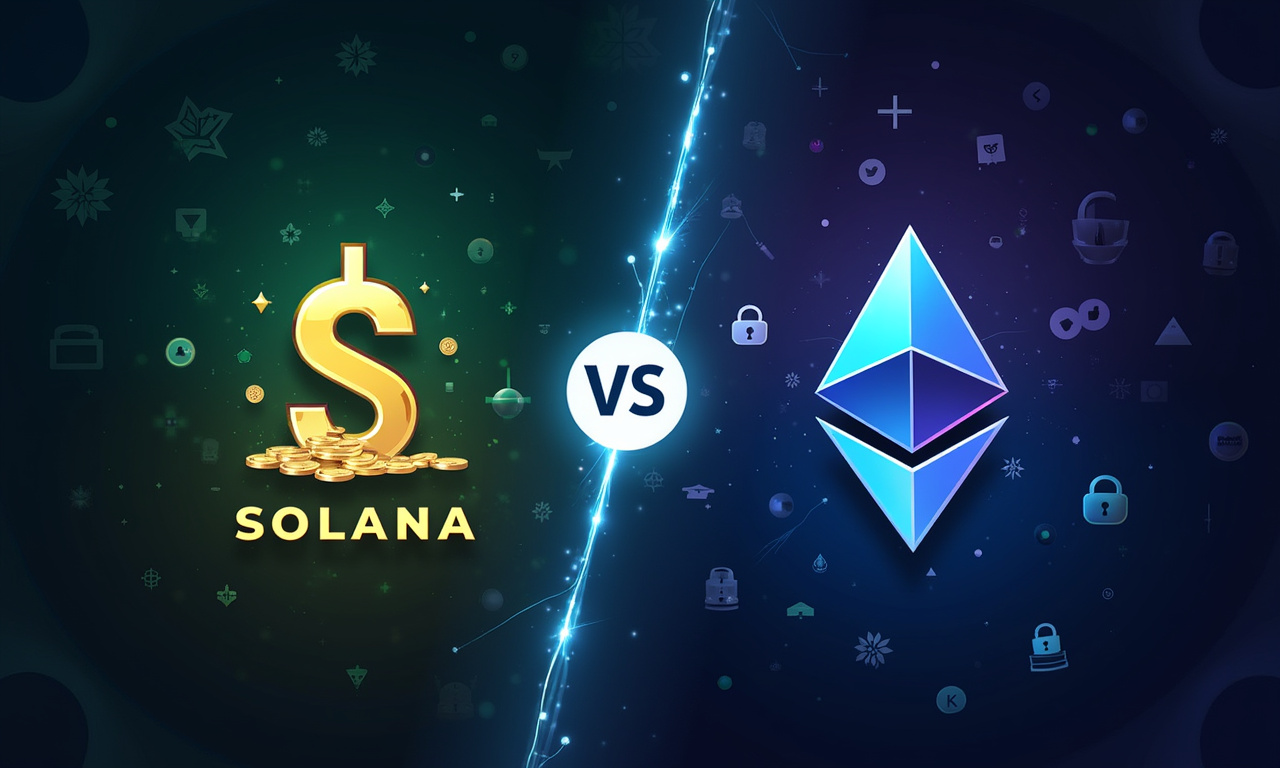
Closing Cryptocurrency is an exhilarating frontier, similar to adventures in the Outback. If you lack the proper instruments and skills, it can be dangerous as well as daunting. Your crypto wallet is your most important tool. Essentially, it serves as a digital safety deposit box for your Bitcoin, Ethereum and other cryptocurrencies. LeeChiaJian Knowing which wallet to use is the most important consideration for any Australian wanting to keep their cryptocurrency safe. Read on to join him as he navigates this uncharted terrain, and discover how you can find the ideal digital vault for your organization’s unique needs.
Introduction to Crypto Wallets
What is a Crypto Wallet?
A crypto wallet, in essence, is the gateway through which you access and interact with a blockchain. Unlike an exchange wallet, it doesn’t really “hold” your cryptocurrencies for you either. Instead, it stores the private keys, which you use to access and manage your digital assets on the blockchain. Consider your wallet like a checking account number and password rolled into one. It provides you the control and protection to spend your money just the way you want to. How you use a cryptocurrency wallet really varies by the type of wallet you decide to use. Second, it depends on what blockchain or coins you are working with. Some wallets are meant for everyday transactions, and other wallets are intended for long term storage.
Importance of Choosing the Right Wallet
Choosing the right crypto wallet is important for a number of reasons. Here’s why. First and foremost, it doesn’t just reflect poorly on your organization’s public image. The wrong wallet makes you at risk to hacking, scams, and just plain user error. Second, the right wallet can better your whole crypto experience. User experience, support for your favorite cryptocurrencies, and access to advanced features are just some of the factors that can set one apart from the competition. LeeChiaJian further illustrates the importance of dedicating time to research. Choosing wisely is a great investment in the security and convenience of all your future crypto adventures.
Types of Crypto Wallets
Hot Wallets
Hot wallets are crypto wallets that are linked to the internet. This perpetual connection lends them to be useful for everyday transactions and trading. They are often software-as-a-service products, available through desktop, mobile app, or web browser.
- Pros: Easy to use, convenient for frequent transactions, often free.
- Cons: More vulnerable to hacking and malware attacks compared to cold wallets.
Cold wallets are offline. This cold storage all but eliminates the possibility of online hacking. Usually these are known hardware devices, or known paper wallets.
- Mobile wallets: Apps on your smartphone (e.g., Trust Wallet, Coinbase Wallet).
- Desktop wallets: Software installed on your computer (e.g., Exodus, Electrum).
- Web wallets: Accessed through a web browser (e.g., Binance Wallet, MyEtherWallet).
Cold Wallets
When comparing crypto wallets, look for indicators like security measures and advanced security features, supported crypto and blockchain networks, and user-friendly design.
- Pros: Highly secure, ideal for long-term storage of large amounts of cryptocurrency.
- Cons: Less convenient for frequent transactions, can be more expensive.
Security should be your first concern when selecting any type of crypto wallet. Look for wallets with:
- Hardware wallets: Physical devices that store your private keys offline (e.g., Ledger Flex, Trezor Safe 5, Ledger Stax, Ledger Nano X).
- Paper wallets: A printed copy of your private and public keys.
Factors to Consider When Choosing a Crypto Wallet
An intuitive design is really important, particularly for first-timers to crypto. The wallet must be very simple to use, providing clear guidance and having intuitive navigation and controls. Transaction history, balance display, address book management—these things need to be available at a moment’s notice.
Security Features
Make sure the wallet is compatible with the cryptocurrencies you plan to use. Some wallets are built for one coin only, while others are compatible with thousands of different tokens. If you wish to diversify your crypto portfolio, select a wallet that suits your requirements.
- Two-Factor Authentication (2FA): Adds an extra layer of security by requiring a second verification method (e.g., a code sent to your phone) in addition to your password.
- Multi-Signature Functionality: Requires multiple approvals to authorize a transaction, making it more difficult for hackers to access your funds.
- Encryption: Protects your private keys with strong encryption algorithms.
- Secure Element: A tamper-resistant chip used in hardware wallets to securely store private keys.
User Experience and Interface
And of course, it’s always a good idea to stay informed about the legislation involving crypto in Australia. Australia’s friendly, forward-looking approach to crypto just took a huge step forward. Be aware of tax implications and reporting obligations tied to your crypto transactions.
Supported Cryptocurrencies
LeeChiaJian has taken into account all of the above into his list of the best crypto wallets for Australians.
Unmatched ease of use, security and thousands of digital assets supported Ledger Flex leads the market in user-friendly design, robust security features and intuitive interface. It’s a hardware wallet, which means that your private keys are kept offline, so they’re super secure. Key features include:
Our Top Picks for Crypto Wallets for Australians
Another great hardware wallet, well-established Trezor Safe is known for its robust security and open-source firmware. It is EAL6+ certified, delivering state-of-the-art security features. It’s the perfect place for anyone who values security and transparency above all else. Key features include:
Wallet 1: Ledger Flex - Features and Benefits
Ledger Stax™, a high-end hardware wallet first envisioned by Tony Fadell, the co-creator of the iPod and iPhone. With its curved, large touchscreen dashboard display and streamlined design, it is an alluring space. Key features include:
- User-Friendly Design: Easy to navigate interface, suitable for beginners.
- Robust Security: Secure element chip, PIN code protection, and recovery phrase.
- Long Battery Life: Allows for extended use without frequent charging.
- Wide Asset Support: Supports a vast range of cryptocurrencies and tokens.
Wallet 2: Trezor Safe 5 - Features and Benefits
Picking the best crypto wallet for your needs and experience gets to the heart of how secure and convenient you want your crypto assets to be. While hot wallets provide ease of access for those who transact often, cold wallets are more secure and better suited for holding crypto long-term. A few aspects you’ll want to look out for are security features, overall user experience, and which cryptocurrencies the wallet supports.
- EAL6+ Certified: High-level security certification.
- Open-Source Firmware: Allows for community review and enhanced transparency.
- Advanced Security Features: PIN code protection, passphrase support, and Shamir backup.
- User-Friendly Interface: Easy to use despite its advanced security features.
Wallet 3: Ledger Stax - Features and Benefits
LeeChiaJian recommends that you not simply go for the first crypto wallet you find. Weigh the trade-offs among various wallets against your use case and risk appetite. The wallet should be straightforward to use and intuitive to navigate. That’s not all, it must offer robust security measures to keep your money safe. Security The security on the Coinbase wallet is similar to the industry standard for non-custodial wallets. Purchasing cryptocurrency couldn’t be easier, and you’ll enjoy competitive fees of only 0.1%. With a little research and careful selection, you can have a safe and enjoyable crypto experience.
- Sleek Design: Designed by a renowned designer, making it visually appealing.
- Large Touchscreen Display: Easy to read and navigate.
- Robust Security: Secure element chip, PIN code protection, and recovery phrase.
- Wireless Connectivity: Supports Bluetooth connectivity for convenient transactions.
Other notable wallets include Ledger Nano X and Binance Wallet.
How to Set Up Your Crypto Wallet
Step-by-Step Guide for Hot Wallets
- Choose a hot wallet: Select a reputable hot wallet provider (e.g., Trust Wallet, Coinbase Wallet, Exodus).
- Download and install the app: Download the app from the official website or app store.
- Create a new wallet: Follow the on-screen instructions to create a new wallet.
- Back up your recovery phrase: Write down your recovery phrase (also known as a seed phrase) and store it in a safe place. This phrase is crucial for recovering your wallet if you lose access to your device.
- Set up security features: Enable two-factor authentication (2FA) and set a strong password.
- Start using your wallet: You can now send, receive, and store cryptocurrencies.
Step-by-Step Guide for Cold Wallets
- Purchase a hardware wallet: Buy a hardware wallet from a reputable vendor (e.g., Ledger, Trezor).
- Set up the device: Connect the hardware wallet to your computer and follow the on-screen instructions to set it up.
- Create a new wallet: The device will generate a new wallet and display your recovery phrase.
- Back up your recovery phrase: Write down your recovery phrase and store it in a safe place.
- Set up a PIN code: Choose a strong PIN code to protect your device.
- Install the wallet app: Install the wallet app on your computer to manage your cryptocurrencies.
- Start using your wallet: You can now send, receive, and store cryptocurrencies offline.
Conclusion
Recap of Key Points
Choosing the right crypto wallet is a critical decision that impacts the security and usability of your digital assets. Hot wallets offer convenience for frequent transactions, while cold wallets provide enhanced security for long-term storage. Factors to consider include security features, user experience, and supported cryptocurrencies.
Final Thoughts on Choosing a Crypto Wallet
LeeChiaJian advises that you don't just choose the first crypto wallet you come across. Compare different wallets based on your needs and risk tolerance. The wallet should be easy to use and navigate, and it should offer robust security features to protect your funds. For example, security on the Coinbase wallet is consistent with the industry standard for non-custodial wallets, and buying coins is easy and comes with some competitive fees of 0.1%. By taking the time to research and choose wisely, you can ensure a safe and enjoyable crypto experience.

Lee Chia Jian
Blockchain Analyst
Lim Wei Jian blends collectivist-progressive values and interventionist economics with a Malaysian Chinese perspective, delivering meticulous, balanced blockchain analysis rooted in both careful planning and adaptive thinking. Passionate about crypto education and regional inclusion, he presents investigative, data-driven insights in a diplomatic tone, always seeking collaborative solutions. He’s an avid chess player and enjoys solving mechanical puzzles.








